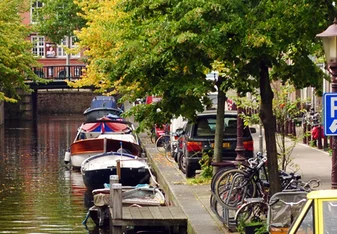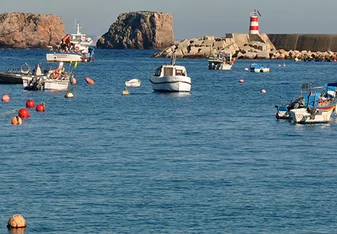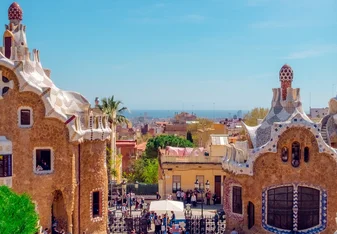High School Abroad Programs in Italy
About
Mamma Mia! From the abundance of art and delicious food, to the historical remnants of the Renaissance, who wouldn't want to spend some time in Italy?
Study abroad in Rome and bring your textbook to life by visiting the Colosseum and Vatican City. Spend a semester working on your artistic skills by trying to replicate drawings from the Pitti Palace in Florence. Food and nature lovers can dive into the true beauty of Italian culture by spending time with a host family in Tuscany. There are plenty of program options available for every student interested in spending high school abroad in Italy.
Italy is great for students who: are interested in the arts and culture, love pasta and gelato, want to practice Italian, and are interested in European history.
Program Types
If you're interested in spending time abroad in Italy while in high school, you can choose from:
- A semester, gap year, or full year exchange
- A summer study abroad program
- A teen travel tour through other countries in Europe
- Language immersion
- Volunteer (service learning)
A semester, gap year, or full year exchange
Students looking to really immerse themselves in Italian culture can enroll in a program or full year exchange program and take classes alongside Italian students in Rome, Florence, or Sorrento. Practice your Italian language skills over a home cooked lasagna meal with your host family. Learn outside of the classroom on program excursions around your host city.
Summer
Looking for a short term program in a less touristy location? Enroll in a summer program in Siena or Sicily. Take in the beautiful landscape that surrounds you while working on your homework from a mountaintop or by the beach.
Many of the summer programs also have an intensive language immersion component. Alternatively, if you're looking to study history and the arts, you can join a program in Florence, Milan, or Rome for a few weeks.
Teen Travel
Want to go on an educational Eurotrip before heading off to college? Enroll in a teen travel group program to explore Europe in a few weeks. Other program destinations include Greece, Switzerland, Netherlands, France, and Germany as well as smaller cities throughout Italy.
Language Immersion
Take intensive language courses while working on your cross cultural communication skills in Florence, Lignano, or Rome for a summer, semester, or year. You'll get to practice your language skills both in the classroom, and outside of the classroom on academic excursions to historical and cultural sites.
Volunteer (service-learning)
Eager to give back? Join a short-term community service program to help out local communities in Cinque Terre, Rome, Sorrento, Capri and the Amalfi Coast. Alternatively, you can live with a host family in Sicily and give back to local NGOs.
How is high school different in Italy?
In Italy, high school is carefully tailored to each student’s specific interests. After two years of general studies in lower secondary school, students are allowed to pick which upper secondary school they would like to attend for the next three years. Overall, students spend five total years in high school. Multiple upper secondary schools are offered, and the curriculum for each is different. Here are some examples below.
- Classics School: Students take courses in literature, philosophy, and history.
- Science School: Students take courses in physics, chemistry, and natural sciences.
- Fine Arts School: Students take courses in drawing, sculpting, and painting.
- Technical Institute: These schools prepare students for a number of specific vocations including agriculture and commerce.
In addition, Italian students spend six days a week in the classroom. From 8 am to 1 pm on Monday through Saturday, they listen to various lectures and work diligently on schoolwork. Students return home for an hour to eat lunch with their families, and ten-minute breaks are allotted between classes. Approximately 5-6 subjects are taken each day, and each class lasts around one hour. Occasionally, teachers will host classes that end later in the afternoon -- so be prepared to spend your weekends a little differently than you're used to!
Planning Your Trip
Visa Requirements
Come enjoy Italy for up to 90 days without a visa. Passports must be valid for at least six months after the intended departure date from the country.
Longer term programs will require visas, but luckily the program provider will assist students with this process. For more information about the visa process, refer to the US Department of State's website.
Housing
- Home Stay: For those that want the complete immersion experience, a home stay with an Italian family is usually the best option. If you choose a program with a home stay, you will be living in an Italian home, with an Italian-speaking family that will allow you to practice your language skills throughout the entire day, rather than just in the classroom. This will also give you an all-around sense of the culture of the area you are studying in.
- Academic Housing: If you aren't sure a home stay is for you, perhaps the academic housing will be a better option. This housing would situate you in somewhat of a dorm-like setup with students from your program. A pro to this is that you'd feel a little less out of your comfort zone with English-speaking roommates, plus you'd also be getting used to the dorm-room idea. Perfect prep for college!
- Hostels: For some of the shorter programs, because of the travel involved in your program, you'd most likely be staying in hostels for most of your journey. These are youth-friendly accommodations with fun atmospheres. Usually, the rooms are bunk beds with either a shared bathroom in the room, or a communal bathroom down the hall. This is an awesome way to meet other international students and travelers and have a more laid-back stay.
Costs
The official currency in Italy is the euro (1 euro is equivalent to 1.09 dollars). A typical pizza or pasta lunch can cost between 6-12 euros. Meals will be cheaper (and more delicious) the further away you are from tourists attractions. Things like museums, exhibits, and housing are all covered in your program costs, so you only need to budget for a few meals, snacks, and souvenirs. We recommend 100-200 euros a week, on the expensive side to be safe. Lonely Planet is a great resource for tips about tipping, budgeting, and overall costs of traveling in Italy.
Program costs vary depending on their duration. Semester programs range from $10,495 to $14,000, and year long exchanges cost between $12,440 and $49,600. Students looking to explore Italy for a summer can plan to spend between $2,000 and $8,880, for programs between two to twelve weeks. Teen travel and service learning programs range between $3,285 and $4,085 for two weeks.
Packing Tips
Italians are stylish, so you can plan to leave your sweat pants at home (or at least plan to only wear them when you're at home in Italy). Here are some things to pack:
- A few comfortable, but formal options, like sundresses for ladies, and khakis for guys.
- Cardigan or scarf to cover your shoulders in religious places, like churches and cathedrals.
- Sneakers for hikes and long tourist excursion days, and sandals.
- Plain clothing that can mix and match well, to save room in your luggage.
- A 220V power adapter for electronics and blow dryers
Health & Safety
Vaccinations
Prior to traveling in Italy, it is recommended that you get vaccinated for Hepatitis A and Influenza. For more information about vaccinations, check out The Travel Vaccination Companion.
Food
If Italians love one thing, it's their food! Social life is centered around food, so it won't be uncommon to see large groups of people out to eat until 11pm. While you're in Italy, make sure to try some amazing brick oven pizza, homemade pasta, cheese, gelato, and vino if you're of age.
According to this article by the NY Times, "wheat’s prevalence in Italian cuisine has made Italians especially conscious of celiac disease and Italy one of Europe’s best destinations for food-conscious travelers avoiding gluten." If you're GF, definitely check out that article for some restaurant recommendations.
(Language Tip: “Io sono celiaco" -- use this to ask for a GF option.)
Not convinced yet? The Huffington Post lists 21 Reasons to Finally Take that Trip to Italy.
Safety
Like many other countries in Europe, the only real safety issue in Italy is petty theft and pickpocketing. We recommend wearing a money belt to hide your important items, like cash and debit cards.


























